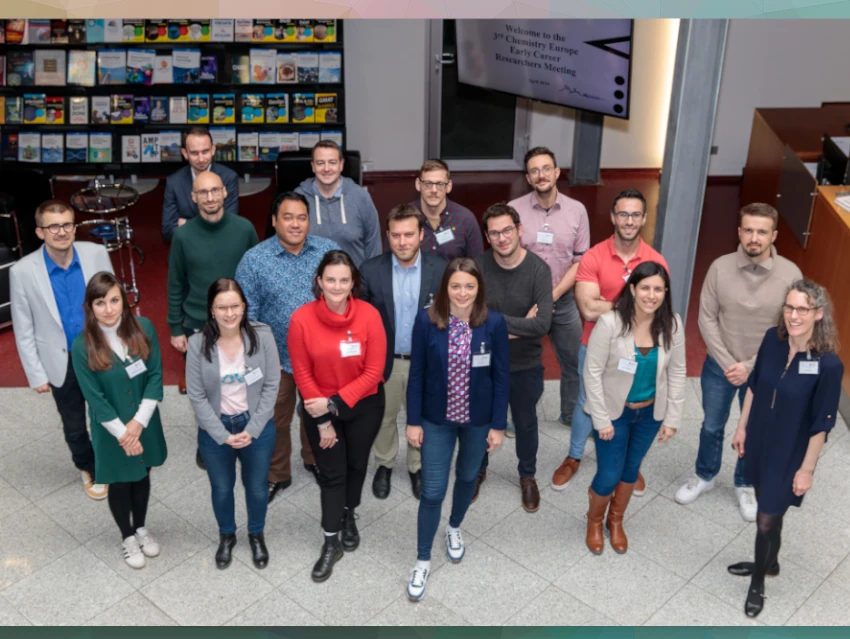Early Career Researchers Meeting
Fourteen guests from all over Europe and editors of Chemistry Europe journals met for two days to discuss trends and challenges in publishing and to get to know each other during networking breaks and a social evening. The third Chemistry Europe Early Career Researchers Meeting was held on invitation by the Chemistry Europe societies at the Wiley-VCH offices in Weinheim, Germany. It was a great success and a very fruitful exchange, as some of the participants described below.
The idea of the meeting was to connect the next generation of chemists with the editors of Chemistry Europe journals and ChemistryViews, Chemistry Europe’s science news magazine. The goal was to discuss challenges in publishing and science communication, exchange ideas and best practices, and clarify expectations for editors, authors, and reviewers, and how mutual support can work. The meeting featured a combination of workshops and talks covering topics such as society publishing, peer review, advanced writing, open access, AI, and the promotion of one’s own research.
What is Chemistry Europe?
Since the late 1990s, what is now called Chemistry Europe has been successfully publishing peer-reviewed scientific journals. It currently publishes 20 journals, including the new gold open access flagship ChemistryEurope.
In addition to its journals, Chemistry Europe publishes the magazine ChemistryViews, which highlights global developments in the chemistry community and emphasizes the people behind the science. Chemistry Europe organizes regular virtual events and awards the prestigious Chemistry Europe Award and Chemistry Europe Fellows. Furthermore, it fosters collaboration among its member societies to support and advance the chemical sciences.
Chemistry Europe is an association of 16 European chemical societies. The societies receive honoraria from Chemistry Europe’s journal program. These are based on the number of articles published in the journals and the countries of origin of the authors submitting their work. The cost and risk of publishing the portfolio is carried by the publisher.
Reflections and Impressions
Some of the participants shared their reflections and impressions about the meeting:
Simona Baluchová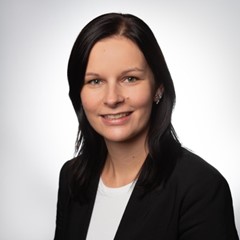
Assistant Professor
Department of Analytical Chemistry, Faculty of Science, Charles University, Prague, Czech Republic
Member of the Czech Chemical Society
Research Interests: analytical chemistry; electrochemistry; characterization and application of novel electrode materials; electroanalysis; water treatment; utilization of additive manufacturing in electrochemical domains
Hobbies: traveling, yoga, movies
Online presence: https://www.linkedin.com/in/simona-baluchova-14554b24b/
https://web.natur.cuni.cz/~baluchos/
Reflections on the meeting:
The 3rd Chemistry Europe Early Career Researchers meeting organized by Wiley-VCH was a valuable and enriching experience. One of the highlights for me was gaining insight into the editorial processes, a perspective often unseen by us as authors. We could understand better the viewpoints of professional editors on publishing and we were able to articulate our expectations from the editorial and peer-review process. It was important to be heard and to have the opportunity to engage directly with the editors.
Additionally, the meeting served as an excellent platform for networking. It enabled me to connect with other early career chemists from various European countries. We had great discussions on a range of topics, including the future of publishing, the use of social media, and the impact of AI in our field, sharing diverse opinions and perspectives.
I also appreciated learning more about Chemistry Europe and ChemistryViews. This event was undoubtedly beneficial for my professional development and for building connections within the chemistry community.
|
Dmitry Baranov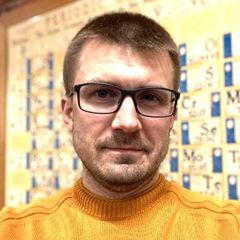
Assistant Professor
Department of Chemistry, Lund University, Sweden
Member of the Swedish Chemical Society
Research Interests: colloidal quantum dots, self-assembly, laser spectroscopy
Hobbies: reading, movies, ultimate frisbee
Online presence: https://www.dbaranov.com/
Reflections on the meeting:
I entered this meeting with many misconceptions about publishing. Hearing directly from editors in small group discussions was very informative. I learned that editors are driven and committed individuals working with authors to deliver a high-quality publication. I also gained a deeper understanding of what their work is like, the nuances of editing, and the overall publishing process. This experience removed the veil of mystery from the publishing industry.
One of the most thought-provoking aspects of the meeting was the discussion on the inevitable integration of AI and AI-enabled tools into publishing, presenting both challenges and opportunities for us as scientists and authors.
The meeting highlighted that many myths about scientific publishing are distorted reflections of academia. I began to imagine a future where, instead of traditional journals, there is a searchable sea of papers categorized by topics or keywords, potentially removing bias associated with publication and prestige metrics.
|
Sara Cembellín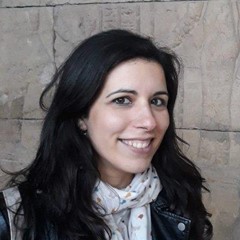
Assistant Professor
Organic Chemistry Department, Faculty of Chemistry, Universidad Complutense de Madrid, Spain
Member of the Spanish Royal Society of Chemistry
Research Interests: catalysis, organic synthesis, organometallics, green chemistry, photocatalysis
Hobbies: music, travels, cinema, sports
Online presence: https://twitter.com/scscembellin
https://orcid.org/0000-0001-9884-9042
https://www.webofscience.com/wos/author/record/G-7413-2015
Reflections on the meeting:
I found the meeting highly enjoyable. It provided me with valuable insights into an editorial process that is typically unfamiliar to us. Additionally, it was an excellent opportunity to meet new young researchers and engage in networking.
|
Anna Dall’Anese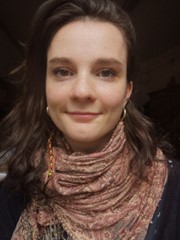
Project Manager
Department of Chemical and Pharmaceutical Sciences, University of Trieste, Trieste, Italy
Member of the Italian Chemical Society
Research Interests: organometallic chemistry, NMR spectroscopy, catalysis
Hobbies: crochet, pottery, reading, yoga, board games, volunteering at a dog shelter
Online presence: https://twitter.com/annadallanese
Reflections on the meeting:
I think this was a great occasion to “put a face” on the editors, and realize that the whole publishing process is not just the (sometimes) dreadful experience we go through as young researchers, but a much more complex mechanism.
Putting a face to the editor made me realize that they’re not our “enemies” in the publishing process (which I think is a quite common misconception, especially among young researchers), and that reaching out to them when in need is a viable and helpful possibility. I was very pleased to see that all of us, with our different backgrounds, had similar perspectives on the topics we discussed (publishing world, communicating science, AI). In my view, this gives further strength to these ideas we shared with the editors, and my hope is that they can be received and implemented by Wiley.
|
Rafael Filipe Teixeira Arbuez Gomes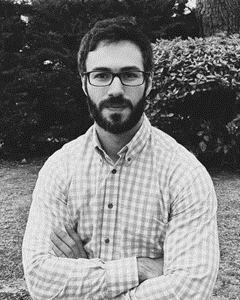
Assistant Professor
Faculty of Pharmacy, University of Lisbon, Portugal
Member of SPQ – Portuguese Chemical Society
Research Interests: sustainable chemistry, chemical biology, therapeutical peptides
Hobbies: kickboxing, board games
Online presence: https://twitter.com/rafaelgomes921
Reflections on the meeting:
The meeting highlighted several aspects of publishing, communication, and academia: the importance of social media in divulging our work, the challenges imposed by metrics such as Impact Factor, and the need to escape these metrics or develop new ones, and the impact of shifting to a more open access-focused environment.
|
Dániel Horváth
Postdoc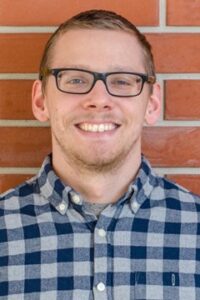
HUN-REN–ELTE Protein Modelling Research Group, Budapest, Hungary
Research Interests: structural aspects of (functional) amyloids
Hobbies: Crossfit, D.I.Y., strategy games
Online presence: https://www.linkedin.com/in/daniel-horvath-0aa677209/
Reflections on the meeting:
For me, understanding the editorial side of the publication process from a human perspective has been encouraging. Recognizing that more transparent and straightforward author-editor communication could enhance efficiency and accelerate publishing. It was concerning that both parties feel the current scientific metric system is exacerbating the self-perpetuating rat race in academia. Authors are pressured to publish more for proper evaluation and livelihood. This pressure leads to fragmented topics and “spamming” publications in parts, that burdens publishers. In response, publishers create numerous journals with similar titles to meet this increased demand, complicating authors’ decisions on where to publish.
Consequently, more editors, marketing efforts, and operational costs are required, leading to increasingly prevalent and growing Article Processing Charges fees, further burdening researchers’ budgets. Ultimately, researchers are compelled to pay these exorbitant fees because, once again, publication and visibility are essential for success in the competitive research landscape dictated by current scientific metrics.
Unfortunately, we have only identified these symptoms and have not yet discovered a definitive solution to this complex problem. Nevertheless, it is encouraging that as young researchers, alongside the editors at Wiley, we have had the opportunity to openly share our thoughts and actively seek and discuss potential solutions to refine the current system.
|
Ioana Ilie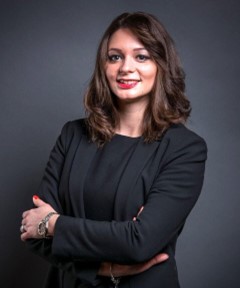
Assistant Professor
van ‘t Hoff Institute for Molecular Sciences, University of Amsterdam, The Netherlands
Member of KNCV – Royal Netherlands Chemical Society
Research Interests: computational chemistry, digital peptide design, biomaterial development, protein folding and aggregation
Hobbies: tennis, hiking, skiing
Online presence: https://ioanailie.org/
https://x.com/ioana_ilie_UvA
Reflections on the meeting:
Wiley and Chemistry Europe brought together a great group of early-career scientists who discussed the future of scientific publishing. Several topics were discussed, among them professional writing in the context of emerging machine learning (ML) techniques and the role of social media. Several questions emerged. Among them: What are the biggest challenges in the current publication scheme for an early-career researcher? What are the biggest concerns and expectations for the future of AI-supported scientific publication?
I am fortunate to have participated in this event. I expanded my network across Europe, gained new collaborators, and contributed to shaping the future of publishing in chemistry.
I learned about ownership and accuracy in light of emerging digital development, about the opportunities within the publishing industry, and about Open Access in the coming years.
|
Nicolas Kratena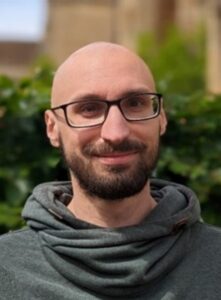
PostDoc
Institute of Applied Synthetic Chemistry, TU Wien, Vienna, Austria
Member of GÖCH – Austrian Chemical Society
Research Interests: synthesis of natural products, biomimicry, combinatorial chemistry, carbohydrate chemistry
Hobbies: Hiking
Online presence: https://twitter.com/Dr_Nik_K
Reflections on the meeting:
The meeting was well-balanced between interesting talks and group discussions. The most valuable feature of this meeting, apart from getting to know other researchers, was the direct and honest exchange with senior editors at Wiley-VCH. I was positively surprised at the quick adaptation of policies regarding the impact of generative AI on publishers.
|
Giulio Ragazzon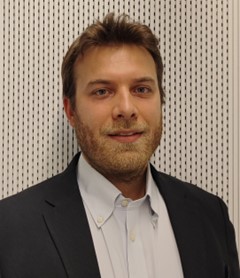
Junior Group Leader
Institut de Science et d’Ingénierie Supramoléculaires – ISIS, University of Strasbourg & CNRS, France
Member of The French Chemical Society, Italian Chemical Society
Research Interests: molecular non-equilibrium systems
Hobbies: biking
Online presence: https://ragazzonlab.isis.unistra.fr/
Reflections on the meeting:
What struck me most is that publishers operate in a much more diverse scenario than academics: while we work in a particular field and under local conditions, publishers think across the board. Leveraging the specificities of fields and supporting bottom-up change would foster progress in science communication. For example, innovative science would benefit from stronger editorial lines – relying on the judgment of referees only for strictly technical aspects. This would give authors more freedom to present content in creative ways: let’s explore different possibilities and see what works best!
|
Michel Rickhaus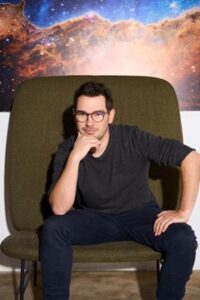
Assistant Professor
Department of Organic Chemistry, University of Geneva, Geneva, Switzerland
Member of The Swiss Chemical Society
Research Interests: polyaromatic synthesis, supramolecular chemistry, self-assembly
Hobbies: drinking tea, technical diving
Online presence:
Individual:
https://twitter.com/michelrickhaus
www.linkedin.com/in/rickhaus
Research group:
https://www.rickhauslab.com/home
https://twitter.com/RickhausLab
https://www.linkedin.com/company/rickhauslab/
Reflections on the meeting:
I offer three takeaways. First, I got to meet wonderful colleagues. Second, editors are on our side; just ask them. Third, Chemistry Europe is a complicated “brand,” but great!
|


